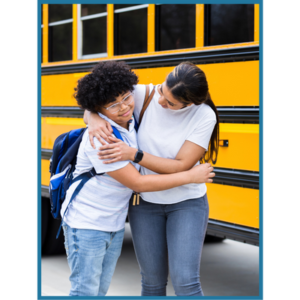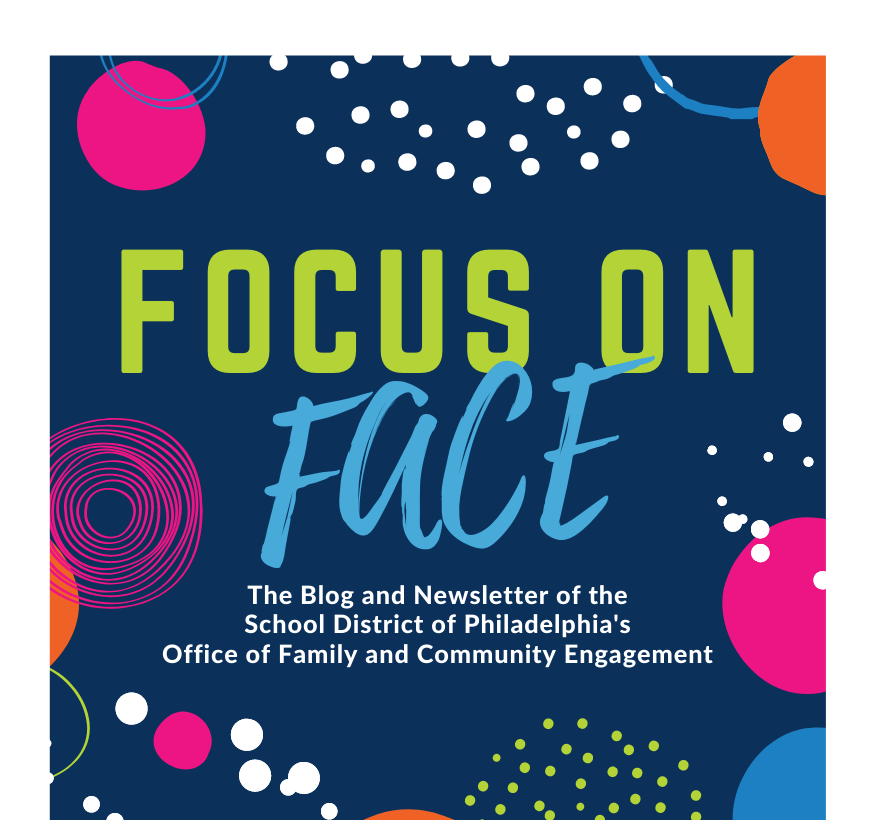The flurry of things to do and people to meet during the first weeks of school is enough to make most of us anxious– from teachers to principals, from parents and caregivers to students of all ages. However, there are things that can be done to make sure we all have a more relaxed school year. We spoke with Jessica Newell, School Counselor for AMY 5 at James Martin School and Ashley Tomlinson, a STEP Clinical Coordinator working at William Cramp Elementary all about back-to-school anxiety, and, if needed, how families can get help for students with anxiety issues during the school year.
 For younger students, a partial list of school-based anxiety symptoms includes tantrums, crying, not wanting to leave home, stomachaches, headaches, and refusing to enter school. Anxiety often leads to “coping strategies”, or ways to self-soothe. Many anxious younger students may try to avoid going to school. Both Jessica and Ashley agreed that, for caregivers, making sure students stay in school is the primary goal. Ashley suggested that “giving in to avoidance can make it more difficult for kids to go to school in the future.” If a student is new in the District, Jessica recommended caregivers should “Let someone know that their child is new; let us know what your worries are and we will become their friends and allies and keep an eye out for them.”
For younger students, a partial list of school-based anxiety symptoms includes tantrums, crying, not wanting to leave home, stomachaches, headaches, and refusing to enter school. Anxiety often leads to “coping strategies”, or ways to self-soothe. Many anxious younger students may try to avoid going to school. Both Jessica and Ashley agreed that, for caregivers, making sure students stay in school is the primary goal. Ashley suggested that “giving in to avoidance can make it more difficult for kids to go to school in the future.” If a student is new in the District, Jessica recommended caregivers should “Let someone know that their child is new; let us know what your worries are and we will become their friends and allies and keep an eye out for them.”
Every student and their mental health situation is unique, so please discuss any questions or concerns with your school counselor. With that said, Ashley and Jessica recommended a few strategies to help with anxiety for students:
- Engaging in deep breathing during stressful moments
- Reflective journaling
- Having families highlight the positive aspects of school
- For younger children who miss their caregivers, talking to the school about potentially allowing the child to bring in an object tied to home, like a picture of family
- For children anxious to meet others, have them practice introducing themselves to others at home before coming to school
And not just students are nervous– there are plenty of parents and caregivers who are anxious over the back-to-school season. Jessica advised caregivers to try to keep a clear social schedule outside of work for the first weeks of school, so there is time to spend with family. Ashley recommended self-care techniques, saying that for caregivers “helping to manage their own anxiety is critical for them to be available for their children.” Both Ashley and Jessica advocated for a strong family routine during these first few school weeks– consistent bedtimes, family schedules at home, and reminding younger children that they will come home from school after dismissal were all recommended.
While some anxiety is based around starting at a new school, there can also be anxiety caused by bullying. In this case, Jessica advised that students should “just let anyone they know that they trust” who is a staff member at the school. School counselors, teachers, and assistant principals as well as the school principal are all staff members that can immediately report incidents of bullying and start the process of mediation.
For multilingual students who may have linguistic barriers and need help with anxiety, it can be beneficial for families to first seek out their BCA, or Bilingual Counseling Assistant. These are school-based District staff who can help families receive the support they need while talking to them in their preferred language. You can find out more about BCAs HERE.
While there can be a lot of anxiety during back-to-school season, there are also opportunities to make new friends, meet new teachers and helpful staff, and build educational skills that can last a lifetime. So, if you’re a caregiver or parent and have children feeling the effects of back-to-school anxiety, feel free to contact your school’s main office and ask to speak to the counselor; As Jessica said: “A school counselor is really a friend for your student that is outside of the academic realm–we’re all about ‘how are you feeling?’”
Resources:

